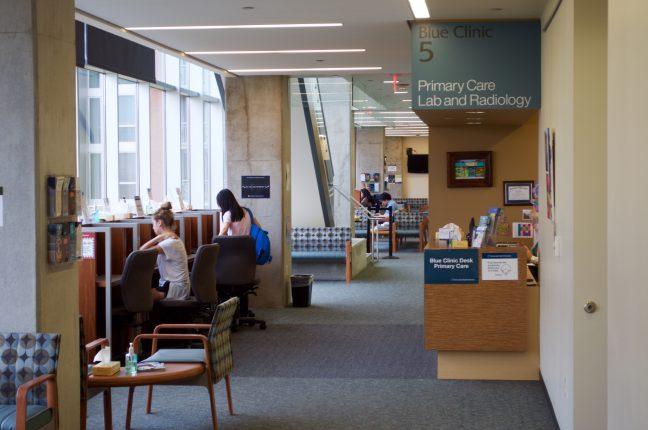Staff members from the LGBT Campus Center held a talk titled “Demystifying UW Trans Health,” in which panelists discussed the potential changes in health insurance for trans individuals in light of Wednesday’s presidential election.
Katherine Charek Briggs, the interim associate director of the LGBT Campus Center, said people think of medical procedures when they hear the word “transition,” but social transitioning encompasses much more, Briggs said.
“It’s not just medical, it’s what else is going on in your life as humans interacting with other humans,” Briggs said.
Briggs said social transitioning includes things like putting your preferred name on your WiscCard or implementing all-inclusive locker rooms at the Southeast Recreational Facility and the Natatorium. It can also include coming out to people or changing the way you dress, Briggs said.
Gabriel Javier, the assistant dean of students and director of the LGBT Campus Center, said the University of Wisconsin has a “team approach,” in which the LGBT Campus Center works together with mental health services and primary care medical services to provide trans health care.
New standards in the World Professional Association for Transgender Health have become more specific to the individual and no longer require a person to prove they are transgender fore six months before medical intervention. Briggs called the old model “oppressive.”
“[The old model says] in order for you to access surgery to resolve the distance between your physical sex and gender identity, you first have to get permission,” Javier said. “Now that’s kind of shitty.”
Briggs said with the new standards, letters from medical professionals for hormone treatment are no longer required, although letters are still required for surgery. University Health Services still requires a letter for hormone treatment, Javier said.
Javier said the process used at UHS is an “informed consent model.” This means that the provider goes through a checklist with the patient so they understand the implications and responsibilities associated with taking hormones.
This process at UHS can take anywhere from 1-4 months, Javier said. The length of the process to get hormones can also depend on the point at which a person looking to transition is in, whether they are just beginning to look into the process or if they already have begun the process.
Javier said insurance can also complicate the process. Many students on UW’s campus pay student health fees that give them certain services, but until about three months ago, there was a “trans health exclusion” included in Wisconsin state employee plans.
Javier said he believes the presidential election of Trump will most likely negatively affect trans health care. He said he believes people will have less access to the appropriate care, but knows the trans community was “figuring it out” for a long time before it benefited from policy changes.
“It may be a step back, or maybe eliminating the potential for a step forward,” Javier said.







